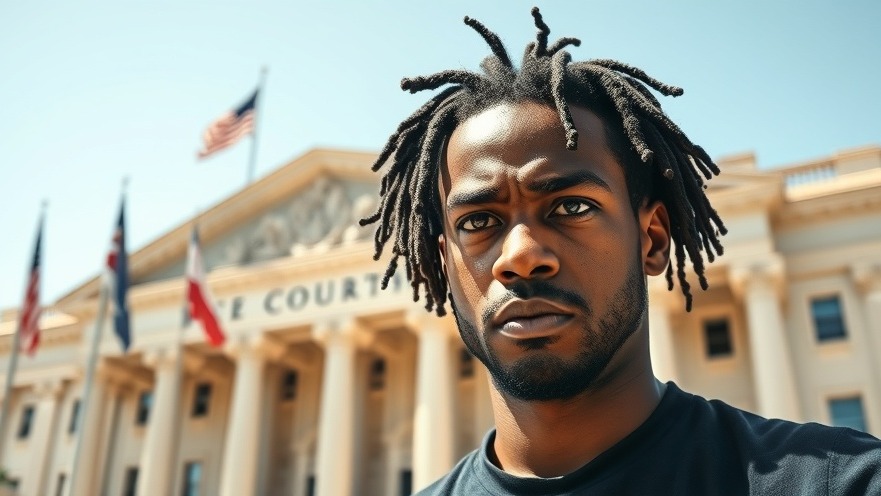
Karmelo Anthony: A Case That Shook a Community
The tragic incident involving Karmelo Anthony, a 17-year-old accused of fatally stabbing fellow student Austin Metcalf, has sparked significant dialogue within the Frisco community and beyond. Occurring on April 2 during a high school track meet at the University Interscholastic League's District 11-5A championship in Frisco, this event raised questions not only about youth violence but also about the legal ramifications and educational opportunities for students in similar situations.
From Courtroom to Graduation: Karmelo's Journey
Recently, Karmelo was granted an unexpected opportunity to graduate from Frisco Centennial High School, an announcement made by the advocacy group Next Generation Action Network, which represents his family. After reaching an agreement with Frisco ISD, he will receive his diploma without attending classes for the rest of the academic year, having satisfied the required credits. However, the terms of this agreement were not disclosed, and Anthony will not participate in graduation activities due to the ongoing legal matters surrounding his case.
The Legal Landscape: Understanding the Charges
Karmelo stands charged with murder, following the tragic death of Austin Metcalf, who was just 17 years old and an athlete at Frisco Memorial High School. The case has captivated local media attention, particularly after a Collin County Judge revised Karmelo's bond from $1 million to $250,000, leading to his release from jail and subsequent placement under house arrest. This legal context complicates the narrative of a teenager set to graduate, presenting a juxtaposition between achievements and the severe consequences of his actions.
Community Response: Conversations on Violence and Education
The Frisco community has been deeply affected by the allegations against Anthony, prompting discussions about youth violence, its roots, and how educational institutions respond. Many advocate for restorative justice approaches, emphasizing the need to support troubled youth rather than solely punishing them within the educational framework. This tragic event casts a spotlight on the complexity of adolescent issues and the legal system's interaction with education.
Balancing Education and Responsibility: The Role of Schools
Frisco ISD responded to inquiries about Karmelo Anthony's situation by citing privacy laws, declining to comment on individual cases. Nonetheless, the district's decision to allow a student with such serious charges to graduate speaks volumes about their policies regarding academic credits and graduation requirements. Educational institutions must balance the need for academic integrity with compassion for the circumstances of their students. Karmelo's case raises questions about educational equity in light of life-altering decisions made during adolescence.
A Moment for Reflection: Societal Implications
The graduation of Karmelo Anthony amidst ongoing legal struggles invites us to reflect on broader societal implications. How do we, as a community, address the concerns surrounding youth violence? What measures can be implemented to prevent similar incidents? Furthermore, Karmelo's situation may lead to discussions about the social systems involved in supporting youth, including mental health resources, conflict resolution programs, and initiatives aimed at helping students deal with adversity.
Looking Forward: Preventing Future Tragedies
In the wake of this tragic event, it becomes imperative for community leaders, parents, and educators to cultivate safe environments for young people. Implementing effective conflict resolution strategies within schools, community outreach programs, and fostering open dialogues about mental health can serve as proactive measures. Additionally, empowering youth through mentorship programs and educational initiatives can promote healthier expression of emotions and relationships.
Conclusion: The Challenge Ahead
Karmelo Anthony's case is an example of the intersection between education, legal consequences, and societal values. As he prepares to receive his diploma, the discussion surrounding his actions and their implications must continue—encouraging a proactive approach to youth violence and supporting educational pathways for all students, even those facing extraordinary circumstances.
In light of this significant narrative, community engagement and conversation are essential. If you resonate with the messages discussed or wish to contribute to fostering a more supportive environment for youth, consider participating in local advocacy efforts or educational programs focused on conflict resolution and youth empowerment.
 Add Element
Add Element  Add Row
Add Row 



Write A Comment